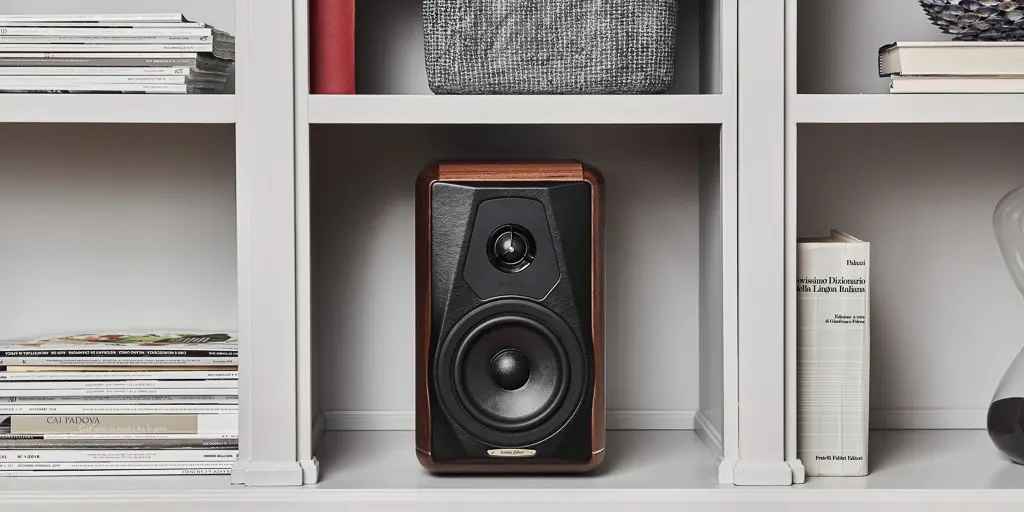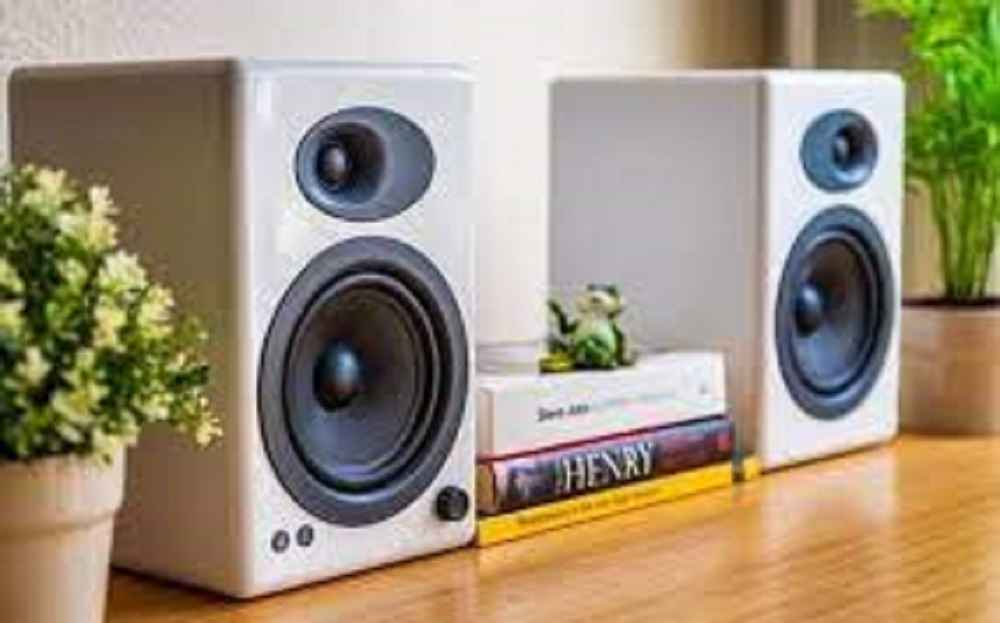Are you looking to improve the sound quality of your bookshelf speakers and thinking of adding a subwoofer? This article will help you to understand if your bookshelf speakers need a subwoofer.
In this article, we will go over the basics of bookshelf speakers and subwoofers, explain their role in a speaker system, and help you determine if a subwoofer is necessary for your bookshelf speakers. Read on.

Understanding Bookshelf Speakers
Bookshelf speakers are compact, standalone speakers that can be placed on a bookshelf, desk, or table. They are designed to deliver clear, high-quality sound without taking up too much space in your room.
Bookshelf speakers are commonly used in small to medium-sized rooms and are a great choice for people who value both sound quality and versatility.
Benefits of using bookshelf speakers include their versatility, affordability, and the fact that they can be easily integrated into any home theater or stereo system.
In terms of frequency range, bookshelf speakers typically cover frequencies from around 60Hz to 20,000Hz, which is the human audible range.
Pros of bookshelf speakers include their compact size, affordability, and versatility. Cons include limited bass response compared to larger speakers and potential limitations in terms of sound quality in larger rooms.
Understanding Subwoofers
A subwoofer is a speaker that is specifically designed to produce low-frequency sounds, such as bass and drums.
Subwoofers are a crucial component in many speaker systems and are often used to enhance the overall sound quality. Subwoofers typically cover frequencies from around 20 Hz to 120 Hz.
The purpose of a subwoofer is to add depth and richness to your music, movie soundtracks, and video games. By producing low-frequency sounds that are often missing from smaller speakers, a subwoofer can provide a more immersive and enjoyable audio experience.
Pros of subwoofers include improved sound quality, enhanced bass response, and the ability to produce low-frequency sounds that smaller speakers can’t handle.
Cons include the need for additional space, higher cost, and potential difficulty in integrating them into your speaker system.

Do Bookshelf Speakers Need a Subwoofer?
The role of subwoofers in speaker systems is to enhance the overall sound quality by producing low-frequency sounds that smaller speakers can’t handle.
Whether bookshelf speakers need a subwoofer depends on several factors, including room size, speaker placement, music genre, and personal preference.
In general, if you have a small to medium-sized room and you’re primarily listening to music that doesn’t have a lot of bass, bookshelf speakers may be enough on their own.
However, if you have a larger room or you enjoy music with a lot of bass, a subwoofer can help to enhance the overall sound quality.
Advantages of using a subwoofer with bookshelf speakers include improved sound quality, enhanced bass response, and the ability to produce low-frequency sounds that smaller speakers can’t handle.

Conclusion
Advantages of not using a subwoofer include lower cost, less complexity in setup, and the ability to use your bookshelf speakers in a wider range of settings.
In conclusion, whether bookshelf speakers need a subwoofer depends on several factors, including room size, speaker placement, music genre, and personal preference.
By considering these factors and understanding the benefits and drawbacks of both bookshelf speakers and subwoofers, you can make an informed decision and choose the speaker system that is right for you.
Can I use bookshelf speakers without a subwoofer?
Yes, you can use bookshelf speakers without a subwoofer. Bookshelf speakers are capable of producing full-range sound, including low-frequency sounds, although the bass may not be as strong as it would be with a subwoofer.
Do bookshelf speakers sound better with a subwoofer?
It depends on your personal preferences and the type of music you listen to. If you enjoy music with a lot of bass or you have a large room, a subwoofer can enhance the overall sound quality of your bookshelf speakers.
If you have a smaller room or you prefer music without a lot of bass, bookshelf speakers alone may be enough.
What is the difference between bookshelf speakers and floor-standing speakers?
Bookshelf speakers are smaller and designed to be placed on a shelf or a stand, while floor-standing speakers are larger and designed to sit on the floor.
Floor-standing speakers often have a more powerful bass response, but they also tend to be more expensive and take up more space.
How should I place my bookshelf speakers and subwoofer in my room?
The placement of your speakers and subwoofer can have a big impact on the sound quality of your system.
It is recommended to place your bookshelf speakers at an equal distance from each other and your listening position, and to angle them towards your listening position. Your subwoofer should be placed in the corner of your room for the best bass response.
Can I connect my bookshelf speakers and subwoofer wirelessly?
Yes, there are wireless bookshelf speakers and subwoofers available on the market that can be connected without any wires.
These systems use Bluetooth or Wi-Fi connectivity to stream audio from your device to your speakers. This can be a convenient and clutter-free option for those who don’t want to deal with wires and cables.
